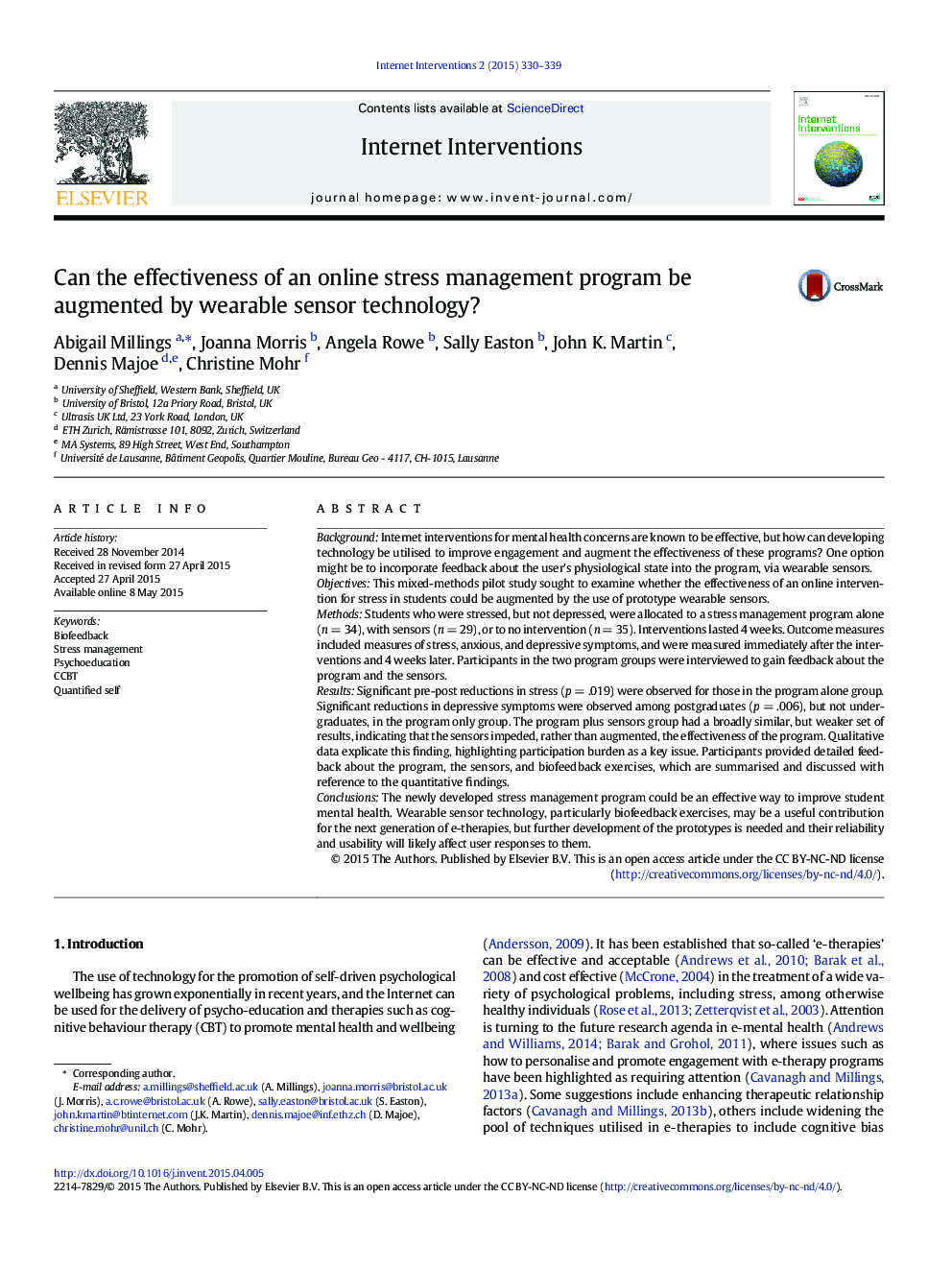| کد مقاله | کد نشریه | سال انتشار | مقاله انگلیسی | نسخه تمام متن |
|---|---|---|---|---|
| 555833 | 874162 | 2015 | 10 صفحه PDF | دانلود رایگان |
• This study examined whether wearable biosensors for self-tracking and biofeedback exercises could be used alongside a stress management program to augment effectiveness.
• A mixed methods design was used in order to gain insight into participant experience. Quantitative findings indicate that the stress management program worked better without, than with the sensors.
• Qualitative data help to explain participation burden as a likely cause of this, but also highlights the potential for future integration of biofeedback in online self-help.
BackgroundInternet interventions for mental health concerns are known to be effective, but how can developing technology be utilised to improve engagement and augment the effectiveness of these programs? One option might be to incorporate feedback about the user's physiological state into the program, via wearable sensors.ObjectivesThis mixed-methods pilot study sought to examine whether the effectiveness of an online intervention for stress in students could be augmented by the use of prototype wearable sensors.MethodsStudents who were stressed, but not depressed, were allocated to a stress management program alone (n = 34), with sensors (n = 29), or to no intervention (n = 35). Interventions lasted 4 weeks. Outcome measures included measures of stress, anxious, and depressive symptoms, and were measured immediately after the interventions and 4 weeks later. Participants in the two program groups were interviewed to gain feedback about the program and the sensors.ResultsSignificant pre-post reductions in stress (p = .019) were observed for those in the program alone group. Significant reductions in depressive symptoms were observed among postgraduates (p = .006), but not undergraduates, in the program only group. The program plus sensors group had a broadly similar, but weaker set of results, indicating that the sensors impeded, rather than augmented, the effectiveness of the program. Qualitative data explicate this finding, highlighting participation burden as a key issue. Participants provided detailed feedback about the program, the sensors, and biofeedback exercises, which are summarised and discussed with reference to the quantitative findings.ConclusionsThe newly developed stress management program could be an effective way to improve student mental health. Wearable sensor technology, particularly biofeedback exercises, may be a useful contribution for the next generation of e-therapies, but further development of the prototypes is needed and their reliability and usability will likely affect user responses to them.
Journal: Internet Interventions - Volume 2, Issue 3, September 2015, Pages 330–339
